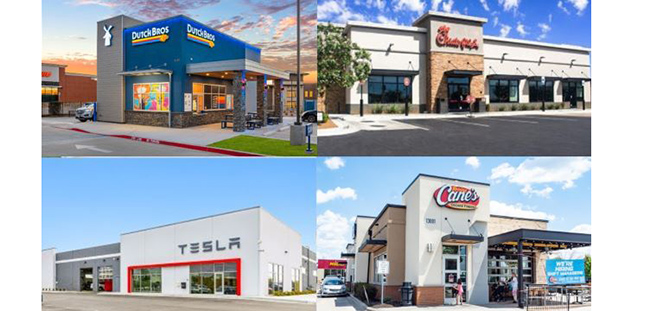
Single-Tenant Net Lease Cap Rates Increase

(Illustration courtesy of Boulder Group)
Cap rates in the single-tenant net lease sector increased for the eighth consecutive quarter in early 2024, according to The Boulder Group, Wilmette, Ill.
The firm’s first quarter Net Lease Research Report found single-tenant cap rates increased seven basis points to 6.42% for retail properties, five basis points to 7.60% for office assets and two basis points to 7.02% for industrial properties.
“Cap rates in the first quarter of 2024 represented the highest levels since 2014 for single-tenant retail properties” Boulder Group President Randy Blankstein said. But he noted that cap rates for single-tenant retail and industrial assets remain approximately 40 basis points lower than their 20-year historical average.
Boulder Group Partner Jimmy Goodman noted elevated interest rates continue to affect transaction volume, which is lower than prior years. “A lack of 1031 exchange buyer activity is resulting in an increased supply of net lease properties on the market,” he said.
Property supply in the single-tenant sector increased nearly 10% compared to the prior quarter. “With limited transactions occurring, properties continue to be added to and stay on the market,” the report said. “Despite the headwinds in the market, certain sellers including merchant builders or owners with upcoming loan maturities look to meet market pricing.”
Net lease retail properties with the largest supply, especially dollar stores and drug stores, have experienced the greatest cap rate expansion. Boulder Group Senior Vice President John Feeney said dollar stores and drug stores experienced double-digit cap rate expansion in the first quarter.
The report noted that any interest rate cuts would be welcomed by net lease owners looking to refinance or sell properties prior to year-end. “With stability in the capital markets, the expectation from market participants is for increased transaction volume in the second half of 2024,” the report said. “However, an increase in transaction volume would be relative as transactions are not expected to be anywhere near the amount in prior peak markets including 2020 and 2021.”
